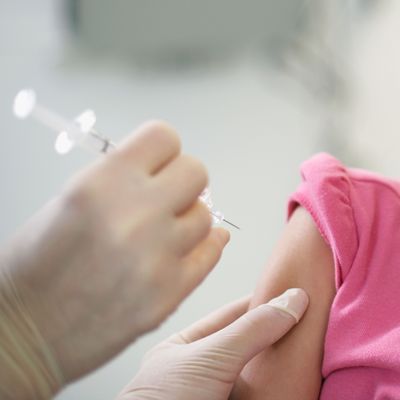
A new study of four years’ worth of tweets suggests that health-care officials face an uphill battle in trying to counteract many anti-vaccine narratives.
Working for the Association for the Advancement of Artificial Intelligence, researchers at the University of Georgia, University of Texas at Austin, and Microsoft have produced the paper “Understanding Anti-Vaccine Attitudes in Social Media,” which examined more than 315,000 tweets spanning the years from 2012 to 2015.
The anti-vaccine movement is small but growing, and it poses a real threat to public health. The study’s authors explain: “As internet-fueled misbeliefs drive people to opt out of vaccination, herd immunity is weakened, increasing the chances of a disease outbreak.” They attempted to identify common characteristics of anti-vaxxers, and what they found is terrifying but not wholly surprising.
Among the nearly 150,000 Twitter users who tweeted about vaccination, they identified three distinct groups of users: those who are anti-vaccine, those who have newly come around to being anti-vaccine, and those who are vocally pro-vaccine.
For those who are long-term anti-vaxxers, other areas of interest include government and military conspiracies, GMOs, the Illuminati, and “infowars,” among others. The study find that these people are more likely to use “direct” language, feel a deep “mistrust” of the government, and display anger. All of this, they write, suggests “characteristics of paranoid thinking.”
Newly converted anti-vaxxers have some similar attitudes: They are generally “suspicious of government” and manifest “conspiratorial thinking,” suggesting overall that they are predisposed to anti-vaccine conversion. Interestingly, the study found that it only took one event to push people who were “predisposed” over the edge into anti-vaccine territory. In 2014, a rumor circulated that the CDC knew the MMR vaccine would produce a 340 percent increased risk of autism in African-American boys, but was suppressing the data. The rumor has long since been debunked (even on Snopes! Snopes still exists!), but the study found that it catalyzed many susceptible Twitter members into real anti-vaxxers.
The takeaway for these researchers is pretty depressing. They write: “health officials attempting to simply correct conspiracy fuelled false claims might be counter-productive.” More simply put: Facts don’t matter. When you correct an anti-vaccination advocate, they suggest, it might just solidify that particular person’s opinion, and, as the case of the CDC whistle-blower event demonstrates, it might also bring new converts into the fold.
They write: “Our case study suggests that even a single event, CDCWhistleBlower in this case, may be a sufficient trigger for these people to adopt an attitude and join a socially counterproductive movement. Given these findings, new interventions such as trying to weaken the long-term government conspiracy base of the movement are needed.”




